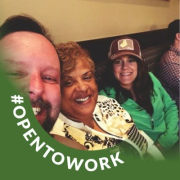

Devo and Netsurion are cybersecurity platforms. While Devo is noted for its comprehensive feature set and support, Netsurion stands out for deployment ease and cost-effectiveness.
Features: Devo offers extensive analytics, customizable threat detection, and real-time monitoring. Netsurion has strong integration capabilities, streamlined dashboards, and easier network data management.
Room for Improvement: Devo could improve performance, enhance intuitive navigation, and streamline its interface. Netsurion needs better reporting features, faster issue resolution, and more detailed analytics.
Ease of Deployment and Customer Service: Devo's deployment is complex but supported with helpful customer service, though it has a steep learning curve. Netsurion is easier to deploy with efficient customer service, leading to quicker implementation.
Pricing and ROI: Devo has higher initial costs but a substantial ROI over time due to advanced features. Netsurion offers a cost-effective setup, good value for money, and satisfactory ROI.
This is particularly evident when dealing with failed login attempts and determining true versus false positives.
When they see a spike in a line chart for a failed login, which could be a true or false attempt, they can click that spike, and a table widget on the same active board instantly populates with raw logs of data for those specific failed logins.
| Product | Market Share (%) |
|---|---|
| Devo | 1.1% |
| Netsurion | 0.7% |
| Other | 98.2% |

| Company Size | Count |
|---|---|
| Small Business | 8 |
| Midsize Enterprise | 4 |
| Large Enterprise | 11 |
| Company Size | Count |
|---|---|
| Small Business | 10 |
| Midsize Enterprise | 7 |
| Large Enterprise | 7 |
Devo is the only cloud-native logging and security analytics platform that releases the full potential of all your data to empower bold, confident action when it matters most. Only the Devo platform delivers the powerful combination of real-time visibility, high-performance analytics, scalability, multitenancy, and low TCO crucial for monitoring and securing business operations as enterprises accelerate their shift to the cloud.
Netsurion offers robust SIEM capabilities enhanced by managed services, facilitating efficient threat identification and response with real-time alerts and comprehensive reporting.
Netsurion stands out for its integration of SIEM, IDS, and vulnerability management. Its real-time threat alerts and dashboards enhance user response capabilities. With centralized logging from Windows, Linux, Cisco devices, firewalls, and Active Directory, Netsurion enables effective compliance support for HIPAA and PCI standards. Managed Threat Protection with the embedded MITRE ATT&CK Framework enhances threat intelligence, while its evolving interface aims to improve user interactions. However, some users find deployment and searching challenging, pointing to areas for improvement.
What are Netsurion's key features?Netsurion is frequently implemented in industries requiring comprehensive security monitoring and compliance, such as healthcare and finance. It aids businesses in consolidating security efforts, offering insights into user activities and system changes, an asset for companies lacking substantial internal resources.
We monitor all Security Information and Event Management (SIEM) reviews to prevent fraudulent reviews and keep review quality high. We do not post reviews by company employees or direct competitors. We validate each review for authenticity via cross-reference with LinkedIn, and personal follow-up with the reviewer when necessary.